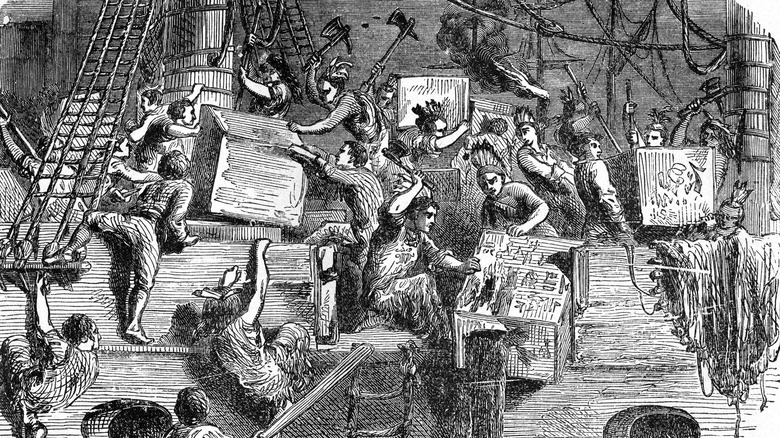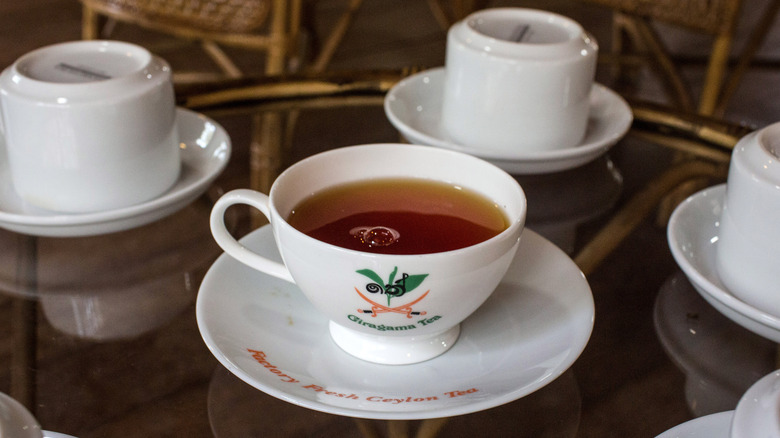What You Should Know About The Tea Involved In The Boston Tea Party
The Boston Tea Party was one of the defining moments in American colonial history. For centuries, schoolchildren have been taught that American patriots, disguised as Native Americans — specifically, Mohawks, according to Ron Chernow's "Washington: A Life" — boarded ships in Boston Harbor and dumped tea overboard in protest of English taxation of the colonies. And while that's true in the outline, this narrative, though easily taught to schoolchildren, leaves out quite a bit of historical nuance about the ownership of the vessels, the motivation of the patriots, and what exactly they were even protesting.
Lost in the shuffle about what exactly happened that night in 1773 is the tea itself, the precious cargo that served as the focal point for the colonists' complaints. While the vandalism and destruction of property was designed to make a political point, the fact remains that somebody was on the hook for the loss of the tea. And how much tea was actually lost in the protest? Was it even good tea?
This is what you need to know about the tea lost in the Boston Tea Party.
The Boston Tea Party destroyed about $2 million worth of Chinese tea
According to History, the British Parliament passed the Tea Act not to raise taxes on tea, but to effectively force the colonists to drink tea traded by the East India Tea Company, itself quite possibly the most powerful corporation in history. The act was effectively a bailout of the business. And despite the name, the company mainly traded in Chinese tea, not Indian tea. The tea had been sitting around London storehouses, unsold, before it was loaded onto ships and sent to Boston to be sold to the colonists.
By the time the protesting colonists were finished, 340 crates of tea, with a value of approximately $2 million in 21st-century money, had been dumped into the ocean. No damage was done to the vessels; no one was injured. (Well, maybe the fish in the harbor were jittery for a couple of days.)
According to the Boston Tea Party Ship & Museum, 240 chests of Bohea, 15 chests of Congou, and 10 chests of Souchong — all black teas — wound up sinking to the bottom of the harbor. In addition, 60 crates of Singlo and 15 crates of Hyson, both green teas, were also tossed into the ocean and rendered undrinkable, "even by American standards," as George Banks famously joked in the film "Mary Poppins."
And in an example of the Law of Unintended Consequences coming into play, the destroyed cargo ruined the favorite teas of George Washington and Thomas Jefferson; both men were known to be fans of the green Hyson.

